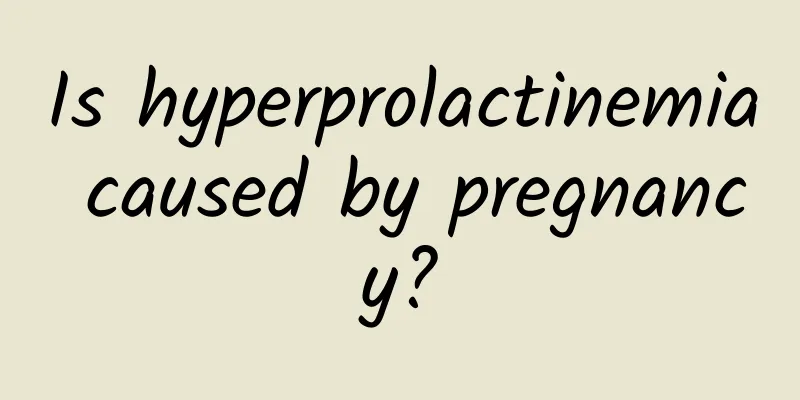Is hyperprolactinemia caused by pregnancy?

|
Many women are afraid of suffering from hyperprolactinemia. In fact, this disease can be prevented. Recent studies have shown that pregnancy can help women prevent hyperprolactinemia. Is this true? Many women are unwilling to have children early, and many women are unwilling to have children. In fact, there are many benefits of pregnancy, one of which is that it can help women prevent hyperprolactinemia. Let me introduce it to you below. Research results show that women who have given birth have a significantly lower risk of hyperprolactinemia than women who have never given birth. This is because the fetal cells present in maternal tissue may help fight breast tumors. However, some experts believe that this research result does not prove that fetal cells can directly eliminate cancer cells, and the relevant conclusions still need further research to support them. Many pregnant women have always thought that their babies are like parasites, only knowing how to take, take, and take. However, a study by American researchers shows that fetal cells present in maternal tissue may help fight breast tumors. Scientists say this may explain why women who have given birth have a significantly lower risk of hyperprolactinemia than women who have never given birth. Researchers have also shown that injecting a specific vaccine appears to increase the number of fetal cells in the mother's body, and they say a similar approach might be used to treat hyperprolactinemia. During pregnancy, some fetal cells enter the mother's blood through the placenta and remain in the mother's skin, liver, brain and spleen for a long time after pregnancy. This phenomenon is called microchimerism. Previous studies have shown that fetal cells can repair damage to certain maternal tissues. Researchers have not been able to explain exactly why fetal cells may help mothers fight cancer. They analyzed that fetal cells may be able to provide the mother with "immune surveillance" of cancer cells, keeping the mother's immune system in a more "alert" state. In addition, it may be because fetal cells are "foreign" cells that can identify and fight cancer cells more effectively than the mother's own immune cells. Some experts also believe that the new research results cannot prove that fetal cells can directly eliminate cancer cells, and the relevant conclusions still need further research support. The above content introduces: pregnancy can help women prevent hyperprolactinemia. It can be seen that pregnancy has many benefits for women. What needs to be reminded is that women should pay attention to preventing hyperprolactinemia. Active prevention is one aspect. If some diseases occur, such as hyperplasia, inflammation, etc., active treatment should be carried out to avoid deterioration. |
<<: What to do if you have hyperprolactinemia during pregnancy
>>: Can hyperprolactinemia cause dystocia?
Recommend
Why do multiple abortions lead to infertility? What are the folk remedies for TCM to treat infertility?
Many young women have had multiple abortions beca...
Prolactin and Hyperprolactinemia
Symptoms of hyperprolactinemia include breast pai...
What are the symptoms of uterine effusion?
Uterine effusion is also a common disease in wome...
What are the diagnostic methods for Trichomonas vaginitis?
Vaginitis is very common in life, and Trichomonas...
How to prevent menopausal functional uterine bleeding?
Traditional Chinese medicine believes that women&...
Why do I gain weight no matter how much I eat? Obesity genes are to blame
[Key Points]: Obesity genes seem to make some peo...
How to treat threatened abortion
How to treat threatened miscarriage? If there is ...
Detailed explanation of the specific causes of acute cervicitis
Acute cervicitis does not have a big impact on wo...
Can drinking soy milk after exercise accelerate muscle growth? Sports nutritionist: These 3 combinations are more effective in growing muscles
Sports and fitness enthusiasts may have heard of,...
Can I still have an abortion after three months?
Artificial abortion can still be performed within...
Hospitals with better surgery for hyperprolactinemia
Among gynecological diseases, hyperprolactinemia ...
Is there any good way to prevent irregular menstruation?
Is there any good way to prevent regular menstrua...
Can endometrial thickening be cured?
I believe everyone knows the importance of the ut...
Can Bartholinitis affect life expectancy?
Bartholinitis rarely occurs in children of childb...
Can dysmenorrhea heal itself after marriage?
When you have dysmenorrhea, there are always elde...









